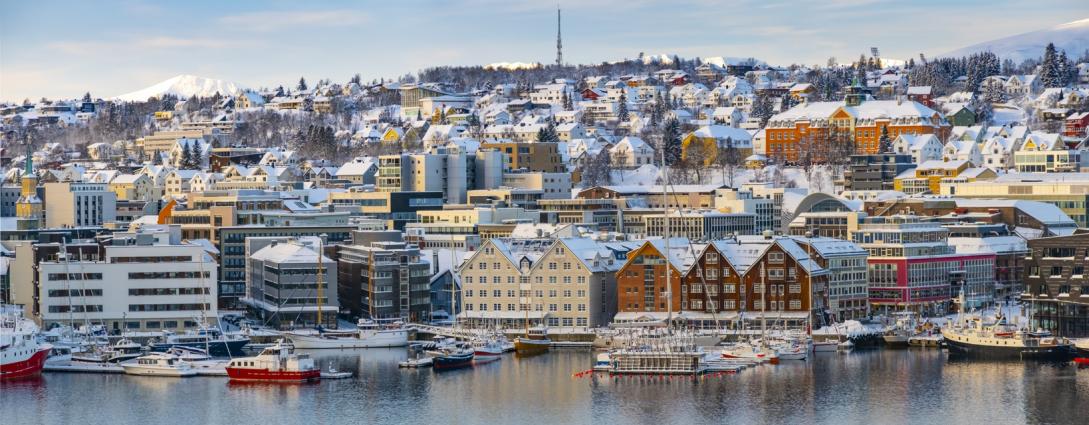15 towns and cities starting new cooperation across the Arctic

The Arctic is home to millions of people, living in a variety of contexts, from small, traditional communities to bustling cities. Many global challenges converge in the Arctic: climate change, geopolitical pressures, energy and green transition, food security, social challenges of demographic change, migration, gender and sexual inequalities and access to healthcare or education. As the impact of rising temperatures, economic competition and geopolitics are keenly felt, local communities including Indigenous Peoples are turning to international cooperation to assist them in identifying sustainable and inclusive paths going forward.
For the first time, a network of cities from across the Arctic will work together to tackle shared challenges in a structured and supported way. The Arctic Urban-Regional Cooperation (AURC) programme, funded by the European Union, gathers 15 local authorities from Canada, Finland, Greenland, Iceland, Norway, Sweden and USA that will work together learning from each other and developing local action plans.
“The EU is helping to bridge a gap, fostering Arctic urban cooperation”, announced Charlina Vitcheva, Director-General for Maritime Affairs and Fisheries at the European Commission, at the Arctic Futures Symposium in Brussels, November 2023, where the new initiative was introduced.
This initiative is one element of the EU Arctic policy , detailed in a Joint Communication in 2021. It streamlines EU engagement notably in tackling the climate challenge through the European Green Deal, working within the EU and with international partners to promote sustainable development.
Clara Ganslandt, the EU’s Special Envoy for Arctic Matters, underlines the importance of dialogue and cooperation. “Supporting the inclusive and sustainable development of the Arctic regions to the benefit of its inhabitants and future generations, focusing on the needs of Indigenous Peoples, women and the young, and investing in future-orientated jobs and the blue economy are among the objectives of the EU Arctic Policy. The AURC programme contributes to achieving this.”
“AURC's emphasis on knowledge exchange and peer-to-peer learning aligns seamlessly with our collaborative efforts, connecting us with other Arctic municipalities and enriching our collective understanding,” explains Kirsti Methi, advisor for International and Arctic affairs at the City of Tromsø, Norway, one of the selected cities. “This shared learning is crucial for the development and implementation of effective and sustainable solutions tailored to the unique needs of our region.”
Despite their varied geographical and cultural contexts, the selected group has already identified common areas of discussion. Salla, a town of 3,400 inhabitants located in Lapland, Finland, is keen to develop a more sustainable tourism model, as is the Greenland municipality of Sermersooq (20,000 inhabitants), impacted by the increase in cruise ship tourism. “Due to the remoteness of Greenland from the rest of the Arctic, the AURC will help us to meet with our peers and stakeholders to share our best practices and also learn new ways to face the pressing challenges that are now a reality in the Arctic” explains Anna Rún Ólafsdóttir, acting head of Sermersooq’s Political Services.
Attracting and retaining talent across the Arctic regions is a struggle for most of the local authorities participating in the programme. Utqiaġvik is the northernmost town in the Americas, and with no paved roads possibly the most remote in the cohort. This is their first experience of international cooperation. Mayor Asisaun Toovak shared that “Being a mayor in the most Arctic place in America, I strive to always move forward. I look forward to connecting with others thriving in the Arctic.”
Each municipality has selected their priorities from green transition, to a socially sustainable Arctic, or inclusive economic development and will start working in smaller clusters.
Tricia Hackett, coordinator of the AURC, is convinced of the value this kind of cooperation will bring. “Virtual technical sessions coupled with in-person study visits and attendance at thematically relevant networking events will allow each municipality to gain a deep understanding of the challenges and solutions happening in other Arctic cities and towns,” she explains. “By getting under the skin of what another Arctic place is facing, it helps get perspective and ideas for one’s own situation and the AURC can facilitate the process of adapting and piloting local solutions.”
The Arctic Urban-Regional cooperation builds on the EU’s extensive experience with peer-learning urban cooperation programmes within Europe, such as URBACT and Interreg programmes, and more directly the International Urban Cooperation (IURC) Programme.
The AURC initiative will be formally launched on 30 January 2024 at a dedicated event alongside the Arctic Frontiers’ conference in Tromsø, Norway.
The initiative is funded by the European Commission’s Service for Foreign Policy Instruments -FPI, working in close cooperation with the European External Action Service, the diplomatic wing of the EU, and the Directorate-General for Maritime Affairs and Fisheries (DG MARE).




